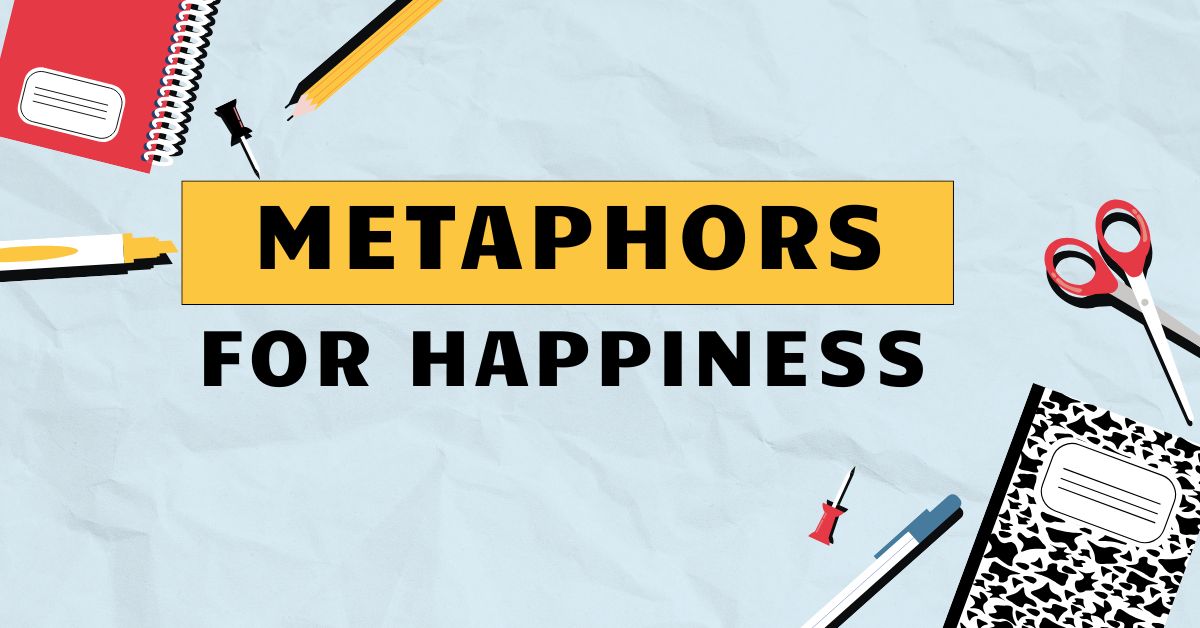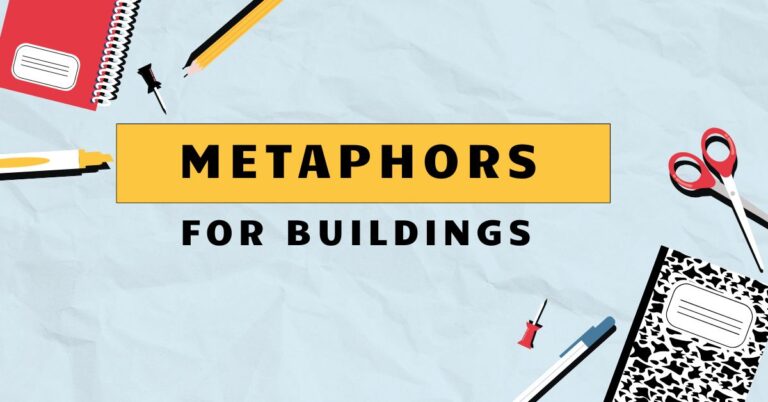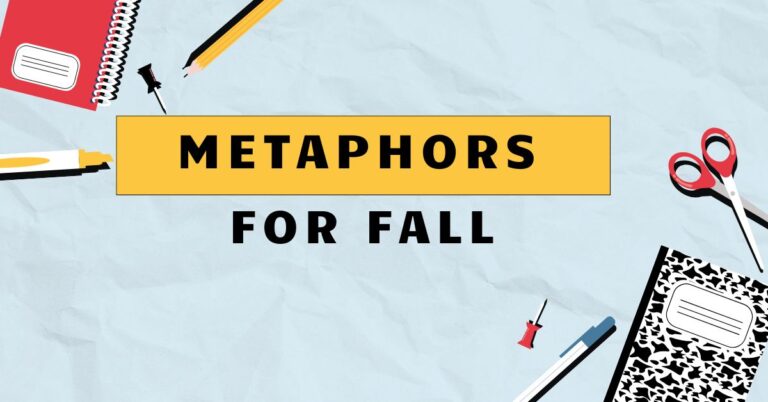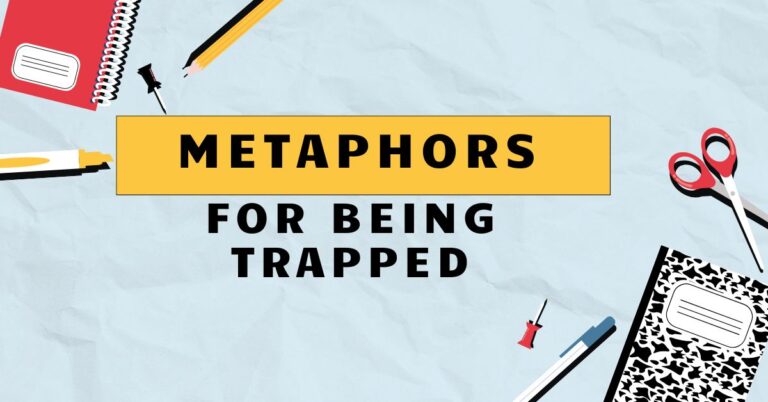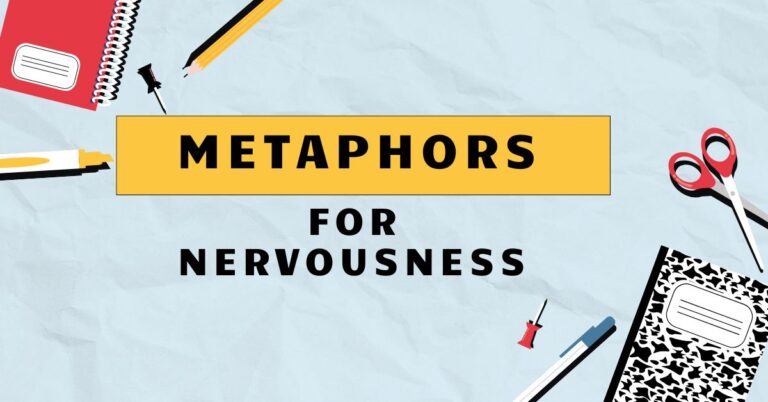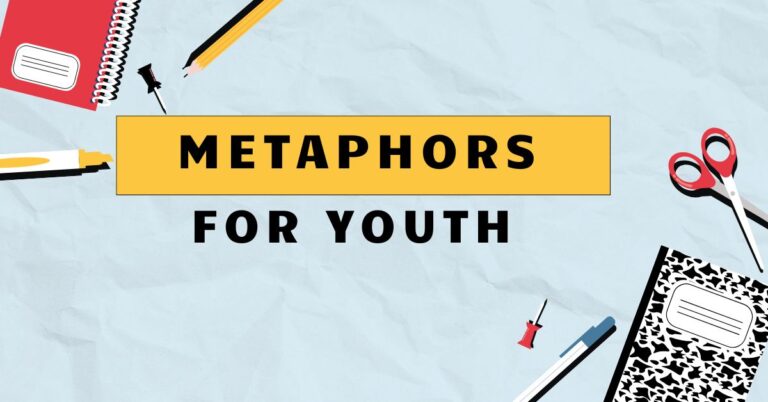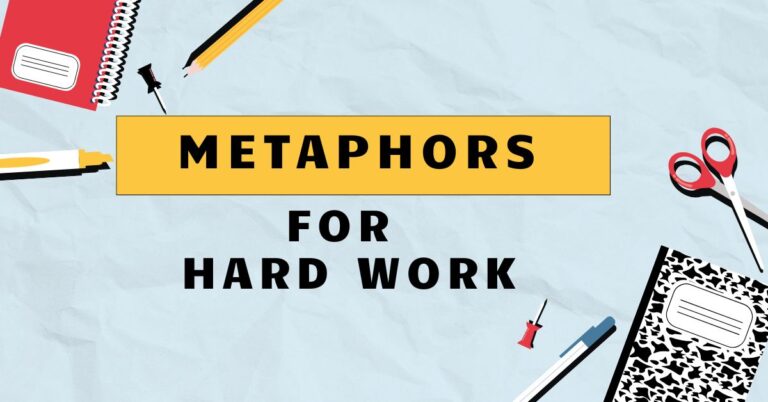45 Metaphors for Happiness: A Comprehensive Guide
Happiness, an abstract emotion, is often described using metaphors that make it more tangible and relatable. Understanding these metaphors not only enhances our appreciation of language but also provides deeper insights into how we conceptualize happiness.
This article explores various metaphors for happiness, their structural elements, usage rules, and common mistakes, providing a comprehensive guide for English language learners and enthusiasts.
Whether you are a student aiming to improve your writing, a language teacher seeking to enrich your lessons, or simply someone fascinated by the power of language, this guide will equip you with the knowledge and tools to effectively understand and use metaphors for happiness.
Table of Contents
- Introduction
- Definition of Metaphor for Happiness
- Structural Breakdown
- Types and Categories
- Examples
- Usage Rules
- Common Mistakes
- Practice Exercises
- Advanced Topics
- FAQ
- Conclusion
Definition of Metaphor for Happiness
A metaphor for happiness is a figure of speech that describes happiness by comparing it to something else, without using “like” or “as.” It operates by transferring qualities or characteristics from one concept (the source domain) to the abstract idea of happiness (the target domain). This comparison helps to make the abstract concept of happiness more concrete and understandable.
Metaphors are essential in language because they allow us to express complex ideas in a vivid and relatable way. For example, saying “Happiness is a warm blanket” uses the feeling of physical warmth to describe the emotional comfort of happiness.
This creates a sensory experience for the reader or listener, making the abstract concept of happiness more accessible.
The function of metaphors for happiness is to provide insight, evoke emotions, and create imagery. They are commonly found in literature, poetry, everyday conversation, and even in psychological discourse.
By understanding how these metaphors work, we can better appreciate the nuances of language and gain a deeper understanding of how we perceive and express emotions.
Structural Breakdown
The structure of a metaphor for happiness typically involves two main components: the tenor (the subject being described, which is happiness) and the vehicle (the object or concept used to describe the subject). The vehicle carries the qualities that are being attributed to the tenor.
For instance, in the metaphor “Happiness is sunshine,” the tenor is happiness, and the vehicle is sunshine. The qualities associated with sunshine, such as warmth, brightness, and positivity, are transferred to the concept of happiness.
This comparison implies that happiness is warm, bright, and positive.
The effectiveness of a metaphor depends on the clarity and relevance of the connection between the tenor and the vehicle. A strong metaphor creates a vivid and meaningful association that enhances understanding.
A weak or confusing metaphor can obscure the intended meaning.
Metaphors can also be extended, meaning that the initial comparison is elaborated upon with additional details and associations. For example, “Happiness is sunshine that warms the soul and nourishes growth” extends the initial metaphor by adding more qualities of sunshine, such as its ability to nourish and promote growth, further enriching the description of happiness.
Types and Categories
Metaphors for happiness can be categorized based on the source domain they draw from. Here are some common categories:
Happiness as Light
This category uses light-related terms to describe happiness, emphasizing brightness, clarity, and visibility. Examples include “Happiness is sunshine,” “Happiness is a bright star,” and “Happiness is the dawn of a new day.” These metaphors convey the idea that happiness illuminates life and makes things clearer and more positive.
Happiness as Warmth
These metaphors connect happiness with feelings of warmth, comfort, and security. Examples include “Happiness is a warm blanket,” “Happiness is a cozy fire,” and “Happiness is a loving embrace.” They suggest that happiness provides comfort and security, like being wrapped in something warm and comforting.
Happiness as a Journey
This category portrays happiness as a journey or a path, emphasizing progress, direction, and discovery. Examples include “Happiness is a winding road,” “Happiness is a journey, not a destination,” and “Happiness is climbing a mountain.” These metaphors suggest that happiness is a process of growth and exploration.
Happiness as a Physical State
These metaphors describe happiness in terms of physical sensations or conditions, such as lightness, buoyancy, or health. Examples include “Happiness is feeling weightless,” “Happiness is like floating on air,” and “Happiness is a healthy heart.” They convey that happiness is a state of physical well-being and ease.
Happiness as Wealth
This category uses financial or material terms to describe happiness, emphasizing abundance, value, and prosperity. Examples include “Happiness is a treasure,” “Happiness is a golden opportunity,” and “Happiness is an investment in yourself.” These metaphors suggest that happiness is valuable and rewarding.
Happiness as Taste
These metaphors associate happiness with pleasant tastes and flavors, emphasizing enjoyment and satisfaction. Examples include “Happiness is a sweet treat,” “Happiness is the taste of victory,” and “Happiness is a flavorful experience.” They convey that happiness is enjoyable and satisfying, like savoring a delicious meal.
Happiness as Music
This category uses musical terms to describe happiness, emphasizing harmony, rhythm, and beauty. Examples include “Happiness is a beautiful melody,” “Happiness is a harmonious chord,” and “Happiness is the rhythm of life.” These metaphors suggest that happiness is harmonious and pleasing, like listening to beautiful music.
Examples
Here are extensive examples of metaphors for happiness, organized by category:
Light Metaphors Examples
The following table provides examples of metaphors that use the concept of light to describe happiness. These metaphors often emphasize the brightness, clarity, and illuminating qualities of happiness.
| Metaphor | Explanation |
|---|---|
| Happiness is sunshine. | Happiness brings warmth and light into life. |
| Happiness is a bright star in the night. | Happiness guides and illuminates the way in dark times. |
| Happiness is the dawn of a new day. | Happiness signifies a fresh start and new opportunities. |
| Happiness is a ray of hope. | Happiness provides a glimmer of optimism in difficult situations. |
| Happiness is a spark of joy. | Happiness is a small but significant source of delight. |
| Happiness is like a sunbeam through the clouds. | Happiness breaks through negativity and brings light. |
| Happiness is the light at the end of the tunnel. | Happiness represents hope and relief after a long struggle. |
| Happiness is a beacon in the darkness. | Happiness serves as a guiding light, leading to safety and joy. |
| Happiness is the glow of contentment. | Happiness radiates from within, showing inner peace and satisfaction. |
| Happiness is a flash of inspiration. | Happiness can come suddenly, bringing new ideas and excitement. |
| Happiness is a shimmering gleam in her eyes. | Happiness is visible and radiant in a person’s expression. |
| Happiness is the sunlight dancing on the water. | Happiness is playful and vibrant, bringing joy to everyday moments. |
| Happiness is the radiant smile of a child. | Happiness is pure and unadulterated, reflecting genuine joy. |
| Happiness is like a candle in a dark room. | Happiness can dispel gloom and bring warmth and light to a situation. |
| Happiness is the illuminating truth. | Happiness can be found in understanding and clarity. |
| Happiness is a spotlight on the good things in life. | Happiness helps you focus on the positive aspects of your experiences. |
| Happiness is the glittering reflection on a calm lake. | Happiness is serene and beautiful, mirroring inner peace. |
| Happiness is a luminous dream. | Happiness feels surreal and magical, like a beautiful dream. |
| Happiness is the brilliant clarity of a clear blue sky. | Happiness is pure and unobstructed, bringing a sense of freedom. |
| Happiness is a firefly in the summer night. | Happiness is fleeting and magical, bringing wonder and delight. |
| Happiness is like a well-lit path. | Happiness guides you forward with clarity and ease. |
| Happiness is the twinkle in his eye. | Happiness is a subtle but noticeable sign of joy and excitement. |
| Happiness is a bright and cheerful disposition. | Happiness is a personality trait that brings positivity to every situation. |
| Happiness is like a sunny disposition. | Happiness is warm and inviting, making others feel comfortable and joyful. |
| Happiness is the bright smile of a loved one. | Happiness is found in the joy and contentment of those you care about. |
| Happiness is a luminous presence. | Happiness fills a space with positive energy and light. |
| Happiness is like a light switch that turns on joy. | Happiness can be triggered suddenly, bringing immediate pleasure. |
| Happiness is the bright future ahead. | Happiness represents hope and optimism for what is to come. |
Warmth Metaphors Examples
This table presents metaphors that use warmth to describe happiness, emphasizing comfort, security, and affection.
| Metaphor | Explanation |
|---|---|
| Happiness is a warm blanket. | Happiness provides comfort and security. |
| Happiness is a cozy fire on a cold night. | Happiness brings warmth and contentment in difficult times. |
| Happiness is a loving embrace. | Happiness is found in affection and connection with others. |
| Happiness is the warmth of a smile. | Happiness is conveyed through positive facial expressions. |
| Happiness is a feeling of being wrapped in love. | Happiness is the comfort and security of being surrounded by affection. |
| Happiness is like a warm cup of cocoa. | Happiness provides simple pleasures and comfort. |
| Happiness is the warmth of the sun on your skin. | Happiness is a gentle and comforting sensation. |
| Happiness is a heartfelt hug. | Happiness is a genuine and affectionate gesture. |
| Happiness is the warmth of friendship. | Happiness is found in the support and companionship of friends. |
| Happiness is like a warm summer breeze. | Happiness is gentle and refreshing, bringing joy and comfort. |
| Happiness is the warm glow of contentment. | Happiness radiates from within, showing inner peace and satisfaction. |
| Happiness is a warm and fuzzy feeling. | Happiness is a pleasant and comforting emotion that evokes nostalgia. |
| Happiness is the warmth of a mother’s love. | Happiness is unconditional and comforting, providing a sense of security. |
| Happiness is like a warm bath after a long day. | Happiness is relaxing and rejuvenating, relieving stress and tension. |
| Happiness is the warm feeling of accomplishment. | Happiness is the satisfaction of achieving a goal or completing a task. |
| Happiness is a warm welcome home. | Happiness is the joy and comfort of returning to a familiar and loving environment. |
| Happiness is the warm sensation of gratitude. | Happiness is the appreciation and thankfulness for the good things in life. |
| Happiness is a warm memory that brings a smile. | Happiness is found in cherished moments that evoke feelings of joy and nostalgia. |
| Happiness is the warm embrace of nature. | Happiness is the peace and tranquility found in the natural world. |
| Happiness is a warm conversation with a friend. | Happiness is the joy and connection found in meaningful interactions. |
| Happiness is like a warm fire that spreads to others. | Happiness is contagious and can bring joy to those around you. |
| Happiness is the warm feeling of being understood. | Happiness is the comfort and validation of being accepted and appreciated. |
| Happiness is a warm thought on a cold day. | Happiness is a comforting and uplifting thought that brings solace in difficult times. |
| Happiness is like a warm ray of sunshine on a chilly morning. | Happiness is a cheerful and uplifting experience that brightens your day. |
| Happiness is the warm feeling of belonging. | Happiness is the sense of connection and acceptance within a community or group. |
| Happiness is a warm smile that melts your heart. | Happiness is a genuine and affectionate expression that evokes feelings of love. |
| Happiness is like a warm cup of tea on a rainy day. | Happiness is simple and comforting, providing a sense of peace and relaxation. |
| Happiness is the warm feeling of anticipation. | Happiness is the excitement and joy of looking forward to something positive. |
Journey Metaphors Examples
This table illustrates metaphors that describe happiness as a journey, emphasizing progress, challenges, and the destination.
| Metaphor | Explanation |
|---|---|
| Happiness is a winding road. | Happiness has ups and downs and unexpected turns. |
| Happiness is a journey, not a destination. | The process of seeking happiness is more important than the end result. |
| Happiness is climbing a mountain. | Happiness requires effort and perseverance but leads to a rewarding view. |
| Happiness is navigating a maze. | Happiness involves overcoming challenges and finding the right path. |
| Happiness is a voyage of self-discovery. | Happiness is found through understanding oneself and one’s purpose. |
| Happiness is like finding your way home. | Happiness is the comfort and security of belonging. |
| Happiness is the path to inner peace. | Happiness leads to a state of tranquility and contentment. |
| Happiness is a road less traveled. | Happiness may require taking unconventional paths. |
| Happiness is the journey of a thousand miles. | Happiness begins with a single step and requires continuous effort. |
| Happiness is like a scenic route. | Happiness is enjoying the beauty and experiences along the way. |
| Happiness is a roadmap to contentment. | Happiness provides direction and guidance towards a fulfilling life. |
| Happiness is a pilgrimage to inner peace. | Happiness is a spiritual journey that requires dedication and reflection. |
| Happiness is the ascent to self-actualization. | Happiness is the process of reaching one’s full potential. |
| Happiness is like crossing a bridge to a better future. | Happiness is the transition from a difficult past to a promising future. |
| Happiness is the trail of breadcrumbs leading to joy. | Happiness is found by following small clues and signs that point toward fulfillment. |
| Happiness is a quest for meaning and purpose. | Happiness is the search for something significant and meaningful in life. |
| Happiness is the voyage of understanding oneself. | Happiness is the journey of self-discovery and personal growth. |
| Happiness is like a treasure hunt for joy. | Happiness is the exciting and rewarding pursuit of finding moments of happiness. |
| Happiness is the path to enlightenment. | Happiness is the journey of gaining wisdom and understanding. |
| Happiness is a trek through life’s challenges. | Happiness is the resilience and perseverance in overcoming life’s obstacles. |
| Happiness is like finding your way through a forest. | Happiness is navigating the complexities of life and finding your true path. |
| Happiness is the road to self-fulfillment. | Happiness is the journey of achieving personal satisfaction and contentment. |
| Happiness is a long and winding road of experiences. | Happiness is the sum of all the experiences and lessons learned throughout life. |
| Happiness is like climbing a ladder to success. | Happiness is the gradual progress and achievement of personal goals. |
| Happiness is the journey of finding your true self. | Happiness is the process of discovering and embracing your authentic identity. |
| Happiness is a quest to find your inner compass. | Happiness is the search for guidance and direction in life. |
| Happiness is like running a marathon of life. | Happiness is the endurance and determination to achieve long-term goals. |
| Happiness is the path of growth and learning. | Happiness is the continuous pursuit of knowledge and self-improvement. |
Physical State Metaphors Examples
This table provides examples of metaphors that use physical states or sensations to describe happiness.
| Metaphor | Explanation |
|---|---|
| Happiness is feeling weightless. | Happiness brings a sense of freedom and ease. |
| Happiness is like floating on air. | Happiness creates a feeling of lightness and joy. |
| Happiness is a healthy heart. | Happiness is associated with well-being and vitality. |
| Happiness is a deep breath of fresh air. | Happiness provides a sense of renewal and invigoration. |
| Happiness is the feeling of being energized. | Happiness brings motivation and enthusiasm. |
| Happiness is like a warm embrace that soothes the soul. | Happiness offers comfort and security, providing relief from emotional distress. |
| Happiness is the feeling of a burden lifted. | Happiness provides relief from stress and worry, creating a sense of freedom. |
| Happiness is being filled with a sense of inner peace. | Happiness cultivates a state of tranquility and harmony within oneself. |
| Happiness is like a gentle, calming wave that washes over you. | Happiness provides a sense of serenity and relaxation, easing tension and promoting well-being. |
| Happiness is the feeling of being grounded and centered. | Happiness cultivates stability and balance in one’s life, creating a sense of security and purpose. |
| Happiness is like a gentle breeze that carries away worries. | Happiness has the power to alleviate stress and anxiety, bringing a sense of lightness. |
| Happiness is the feeling of being in sync with the universe. | Happiness creates a sense of harmony and connection with the world around you. |
| Happiness is like a warm, comforting hug that makes you feel safe. | Happiness offers solace and security, providing a sense of emotional support and well-being. |
| Happiness is the feeling of being rejuvenated and refreshed. | Happiness revitalizes the mind, body, and spirit, promoting a sense of renewal. |
| Happiness is like a gentle snowfall that blankets the world in peace. | Happiness provides a sense of tranquility and serenity, creating a peaceful environment. |
| Happiness is the feeling of being connected to something greater than yourself. | Happiness instills a sense of purpose and belonging, fostering a connection to the world and others. |
| Happiness is like a warm, soothing bath that eases tension and stress. | Happiness provides relaxation and comfort, promoting physical and emotional well-being. |
| Happiness is the feeling of being alive and vibrant. | Happiness fills you with energy and enthusiasm, making you feel fully engaged in life. |
| Happiness is like a gentle massage that relaxes your muscles and soothes your mind. | Happiness provides physical and emotional relaxation, promoting overall well-being. |
| Happiness is the feeling of being present in the moment. | Happiness cultivates mindfulness and appreciation for the here and now. |
| Happiness is like a gentle melody that lifts your spirits and brightens your day. | Happiness has the power to uplift and inspire, bringing joy and positivity to your life. |
| Happiness is the feeling of being grateful for what you have. | Happiness cultivates appreciation and contentment, fostering a sense of abundance. |
| Happiness is like a warm, sunny day that fills you with joy and optimism. | Happiness provides a sense of warmth and positivity, brightening your outlook on life. |
| Happiness is the feeling of being loved and accepted. | Happiness fosters a sense of belonging and connection, promoting self-esteem and confidence. |
| Happiness is like a gentle rain that cleanses and renews the earth. | Happiness provides a sense of cleansing and renewal, washing away negativity and promoting growth. |
| Happiness is the feeling of being confident and empowered. | Happiness instills a sense of self-assurance and capability, enabling you to pursue your goals with enthusiasm. |
| Happiness is like a warm, gentle breeze that caresses your skin and soothes your soul. | Happiness provides comfort and relaxation, promoting a sense of peace and well-being. |
Wealth Metaphors Examples
The following table provides metaphors that use wealth-related terms to describe happiness, emphasizing its value and abundance.
| Metaphor | Explanation |
|---|---|
| Happiness is a treasure. | Happiness is valuable and worth seeking. |
| Happiness is a golden opportunity. | Happiness is a valuable chance that should be seized. |
| Happiness is an investment in yourself. | Happiness is a worthwhile use of time and resources. |
| Happiness is a wealth of experiences. | Happiness is found in a variety of enriching activities. |
| Happiness is a priceless gift. | Happiness is invaluable and cannot be bought. |
| Happiness is like a bank account full of joy. | Happiness is a reserve of cheerful moments that can be drawn upon in difficult times. |
| Happiness is a treasure chest filled with precious memories. | Happiness is composed of cherished moments that are stored and remembered. |
| Happiness is a golden ticket to a fulfilling life. | Happiness is the key to unlocking a life of purpose and satisfaction. |
| Happiness is like a pot of gold at the end of the rainbow. | Happiness is a reward that is sought after and ultimately discovered. |
| Happiness is a priceless gem that shines brightly. | Happiness is a valuable and radiant quality that enhances life. |
| Happiness is a treasure trove of positive emotions. | Happiness is an abundance of positive feelings and experiences. |
| Happiness is a golden opportunity to spread joy. | Happiness is a chance to bring happiness to others and enrich their lives. |
| Happiness is like a piggy bank filled with little joys. | Happiness is accumulated through small moments of pleasure and contentment. |
| Happiness is a treasure map leading to inner peace. | Happiness provides direction and guidance towards a state of tranquility and contentment. |
| Happiness is a golden age of contentment and joy. | Happiness is a period of time marked by fulfillment and positivity. |
| Happiness is a treasure hunt for moments of delight. | Happiness is the exciting pursuit of finding and experiencing moments of joy. |
| Happiness is like a cornucopia overflowing with blessings. | Happiness is an abundance of good fortune and positive experiences. |
| Happiness is a wealth of loving relationships. | Happiness is found in the support and connection of meaningful relationships. |
| Happiness is a golden opportunity to create lasting memories. | Happiness is a chance to create cherished moments that will be remembered for years to come. |
| Happiness is like a treasure chest overflowing with dreams. | Happiness is an abundance of aspirations and goals that enrich life. |
| Happiness is a wealth of inner strength and resilience. | Happiness is found in the ability to overcome challenges and maintain a positive outlook. |
| Happiness is a golden opportunity to make a difference. | Happiness is a chance to contribute to the world and leave a positive impact. |
| Happiness is like a bank account that earns interest over time. | Happiness grows and accumulates with each positive experience and memory. |
| Happiness is a treasure map guiding you to your true potential. | Happiness provides direction and guidance in realizing your full capabilities and achieving your goals. |
| Happiness is a golden age filled with love and laughter. | Happiness is a time of joy, connection, and positive experiences. |
| Happiness is like a treasure chest overflowing with gratitude. | Happiness is rooted in appreciation and thankfulness for the good things in life. |
| Happiness is a wealth of moments that make life worth living. | Happiness is the sum of all the positive experiences and memories that enrich life. |
| Happiness is a golden opportunity to pursue your passions. | Happiness is a chance to engage in activities that bring joy and fulfillment. |
Taste Metaphors Examples
The following table uses metaphors related to taste to describe happiness, emphasizing enjoyment and satisfaction.
| Metaphor | Explanation |
|---|---|
| Happiness is a sweet treat. | Happiness is enjoyable and satisfying. |
| Happiness is the taste of victory. | Happiness is the satisfaction of achieving a goal. |
| Happiness is a flavorful experience. | Happiness is rich and rewarding. |
| Happiness is like a delicious meal that nourishes the soul. | Happiness provides emotional sustenance and satisfaction. |
| Happiness is the sweet nectar of life. | Happiness is the most enjoyable and rewarding aspect of existence. |
| Happiness is like a warm cup of cocoa on a cold day. | Happiness is comforting and satisfying, providing solace and warmth. |
| Happiness is the savory flavor of success. | Happiness is the rewarding taste of achieving goals and overcoming challenges. |
| Happiness is like a gourmet dish prepared with love. | Happiness is a carefully crafted and deeply satisfying experience. |
| Happiness is the sweet taste of freedom. | Happiness is the enjoyment and liberation from constraints and limitations. |
| Happiness is like a delicious dessert that delights the senses. | Happiness is a pleasurable and satisfying experience that brings joy and contentment. |
| Happiness is the sweet aroma of cherished memories. | Happiness is the pleasant and comforting feeling evoked by fond recollections. |
| Happiness is like a gourmet meal that nourishes the mind and body. | Happiness provides emotional and physical sustenance, promoting overall well-being. |
| Happiness is the sweet taste of accomplishment. | Happiness is the rewarding satisfaction of achieving a goal or overcoming a challenge. |
| Happiness is like a flavorful spice that adds zest to life. | Happiness enhances and enriches experiences, making them more enjoyable and vibrant. |
| Happiness is the sweet sensation of being loved. | Happiness is the comforting and fulfilling feeling of affection and acceptance. |
| Happiness is like a delicious treat that satisfies the soul. | Happiness provides emotional fulfillment and gratification, leaving one feeling content. |
| Happiness is the savory flavor of meaningful connections. | Happiness is the rewarding taste of strong and fulfilling relationships. |
| Happiness is like a gourmet coffee that invigorates the senses. | Happiness energizes and stimulates the mind, promoting alertness and enthusiasm. |
| Happiness is the sweet taste of shared laughter. | Happiness is the joy and connection experienced through shared moments of humor. |
| Happiness is like a flavorful dish that nourishes the spirit. | Happiness provides emotional and spiritual sustenance, promoting inner peace and well-being. |
| Happiness is the sweet aroma of new beginnings. | Happiness is the pleasant and promising feeling associated with fresh starts and opportunities. |
| Happiness is like a gourmet chocolate that melts in your mouth. | Happiness is a luxurious and indulgent experience that brings pure delight. |
| Happiness is the savory flavor of personal growth. | Happiness is the rewarding taste of self-improvement and development. |
| Happiness is like a flavorful tea that soothes the senses. | Happiness provides relaxation and comfort, promoting a sense of calm and well-being. |
| Happiness is the sweet taste of gratitude for all the blessings in life. | Happiness is the appreciation and thankfulness for the good things in one’s existence. |
| Happiness is like a delicious smoothie that fuels your day. | Happiness provides energy and vitality, enabling you to tackle challenges with enthusiasm. |
| Happiness is the savory flavor of helping others. | Happiness is the rewarding taste of making a positive impact on the lives of others. |
| Happiness
is like a delicious cake that brings joy to every occasion. |
Happiness is a celebratory and delightful experience that enhances special moments. |
Music Metaphors Examples
This table provides examples of metaphors that use musical terms to describe happiness.
| Metaphor | Explanation |
|---|---|
| Happiness is a beautiful melody. | Happiness is pleasing and harmonious. |
| Happiness is a harmonious chord. | Happiness is balanced and agreeable. |
| Happiness is the rhythm of life. | Happiness is a consistent and pleasant flow. |
| Happiness is like a symphony of joy playing in your heart. | Happiness is a complex and harmonious arrangement of joyful emotions. |
| Happiness is the sweet song of contentment. | Happiness is the pleasing and fulfilling feeling of satisfaction. |
| Happiness is like a soothing lullaby that eases your worries. | Happiness is comforting and relaxing, providing solace and peace. |
| Happiness is the harmonious blend of love and laughter. | Happiness is the balanced and pleasing combination of affection and humor. |
| Happiness is like a lively dance that celebrates life. | Happiness is an energetic and joyful expression of living. |
| Happiness is the melodious echo of cherished memories. | Happiness is the pleasant and comforting feeling evoked by fond recollections. |
| Happiness is like a vibrant orchestra playing in perfect harmony. | Happiness is a coordinated and harmonious arrangement of positive experiences. |
| Happiness is the rhythmic beat of a joyful heart. | Happiness is the steady and consistent feeling of inner joy and contentment. |
| Happiness is like a soulful tune that touches the depths of your being. | Happiness is a profound and meaningful experience that resonates with your inner self. |
| Happiness is the harmonious convergence of mind, body, and spirit. | Happiness is the balanced and integrated state of well-being. |
| Happiness is like a joyful anthem that inspires and uplifts. | Happiness is an empowering and encouraging experience that motivates and elevates. |
| Happiness is the melodic cadence of a life well-lived. | Happiness is the rhythmic and pleasing flow of a fulfilling existence. |
| Happiness is like a serene symphony that calms your soul. | Happiness is a peaceful and harmonious arrangement of emotions that soothes and comforts. |
| Happiness is the rhythmic pulse of excitement and anticipation. | Happiness is the steady and lively feeling of looking forward to positive experiences. |
| Happiness is like a vibrant melody that resonates with your inner self. | Happiness is a harmonious and meaningful experience that connects with your deepest emotions. |
| Happiness is the harmonious blend of passion and purpose. | Happiness is the balanced and fulfilling combination of enthusiasm and meaningful goals. |
| Happiness is like a joyful chorus that celebrates the beauty of life. | Happiness is an uplifting and harmonious expression of appreciation for the world around you. |
| Happiness is the melodic thread that weaves through the tapestry of life. | Happiness is a consistent and pleasing element that enriches and connects experiences. |
| Happiness is like a soothing concerto that brings peace to your mind. | Happiness is a calming and harmonious arrangement of emotions that eases stress and anxiety. |
| Happiness is the rhythmic dance of joy and contentment. | Happiness is a lively and balanced expression of inner peace and satisfaction. |
| Happiness is like a vibrant song that fills your heart with love. | Happiness is an uplifting and harmonious experience that evokes feelings of affection and connection. |
| Happiness is the melodic harmony of meaningful relationships. | Happiness is the balanced and pleasing combination of strong and fulfilling connections with others. |
| Happiness is like a joyful symphony that celebrates every moment. | Happiness is an uplifting and harmonious expression of appreciation for each experience in life. |
| Happiness is the melodic rhythm that guides you through life’s journey. | Happiness is a consistent and pleasing element that provides direction and purpose. |
| Happiness is like a vibrant tune that inspires you to dance. | Happiness is an uplifting and harmonious experience that motivates you to express joy and enthusiasm. |
Usage Rules
When using metaphors for happiness, consider the following rules to ensure clarity and effectiveness:
- Relevance: Ensure the vehicle (the thing you’re comparing happiness to) is relevant and relatable to the audience. The connection should be clear and logical.
- Consistency: Maintain consistency in the metaphor. Avoid mixing metaphors that create conflicting images or ideas.
- Originality: Strive for originality to make your writing more engaging and memorable. Overused metaphors can sound cliché and lose their impact.
- Clarity: Ensure the metaphor enhances understanding rather than obscuring it. If the metaphor is too complex or abstract, it may confuse the reader.
- Context: Consider the context in which the metaphor is used. The appropriateness of a metaphor can depend on the tone, audience, and purpose of the writing.
Common Mistakes
Here are some common mistakes to avoid when using metaphors for happiness:
- Clichés: Using overused metaphors like “happiness is sunshine” without adding a fresh perspective.
- Mixed Metaphors: Combining unrelated images, such as “Happiness is a rollercoaster that shines brightly.” “Happiness is a rollercoaster.” or “Happiness is sunshine.”
- Inappropriate Vehicles: Choosing vehicles that don’t align with the intended meaning of happiness, such as “Happiness is a heavy rock.” “Happiness is feeling weightless.”
- Overcomplicating: Making the metaphor too complex, which obscures the meaning rather than clarifying it.
- Lack of Relevance: Using vehicles that are not relatable or understandable to the audience.
Practice Exercises
Test your understanding of metaphors for happiness with these exercises:
Exercise 1: Identifying Metaphors
Identify the metaphors for happiness in the following sentences:
- Her happiness was a warm blanket on a cold day. Happiness is a warm blanket.
- Happiness is a journey, not a destination. Happiness is a journey.
- His laughter was a sweet melody. Laughter is a sweet melody.
- Happiness is a treasure to be cherished. Happiness is a treasure.
- Their joy was sunshine after the rain. Joy is sunshine.
Exercise 2: Creating Metaphors
Create your own metaphors for happiness using the following vehicles:
- A gentle breeze: Happiness is a gentle breeze that caresses your skin and soothes your soul.
- A blooming flower: Happiness is a blooming flower, unfolding its beauty to the world.
- A calm sea: Happiness is a calm sea, reflecting the peace within.
Exercise 3: Correcting Misused Metaphors
Correct the following misused metaphors:
- Happiness is a rough sea that sings sweetly. Happiness is a calm sea.
- Happiness is a dark star shining brightly. Happiness is a bright star.
- Happiness is a heavy feather floating away. Happiness is feeling weightless.
Advanced Topics
For a deeper understanding of metaphors for happiness, consider exploring these advanced topics:
- Conceptual Metaphor Theory: Learn about the theory that metaphors are fundamental to our thought processes and how we understand abstract concepts.
- Cross-Cultural Metaphors: Investigate how metaphors for happiness vary across different cultures and languages.
- The Role of Metaphors in Psychology: Explore how metaphors are used in therapy and counseling to help individuals understand and express their emotions.
FAQ
Conclusion
Metaphors for happiness are powerful tools that enrich our language and deepen our understanding of emotions. By mastering the art of creating and using these metaphors, you can express complex ideas in a vivid and engaging way.
Whether you are writing poetry, engaging in conversation, or simply reflecting on your own emotions, the ability to use metaphors effectively will enhance your communication and enrich your perspective on happiness.

